To do this, the former Socialist-Green coalition government, led by Gerhard Schröder, enacted the so-called Renewable Energy Feed-In Act (EEG) in 2000. This Feed-In Act requires electric utilities to buy all renewable energies, such as solar and wind power, from all producers at fixed, exorbitant rates and to feed it into the power grid for a period of 20 years. This has led to a boom as thousands of homeowners, businesses, and investors have installed thousands of megawatts of solar and wind power capacity over the years. The current Conservative-Liberal government, not to be outdone by its predecessor, is also gleefully pushing the Feed-In Act to the limit.
Weather-dependent supply wreaking havoc on the power grid
The problem is that these energy sources are weather-dependent and thus their sporadic supply is starting to wreak havoc on Germany’s power grid and is even now threatening to destabilize power grids all across Europe. The other problem: the power grid needed to distribute the decentrally produced green power is simply not there yet. They forgot to build it! So far, after tens of billions of euros spent on renewable energy systems and higher prices for consumers, not a single coal or gas-fired power plant has been taken offline. To the contrary, old inefficient plants have been brought back into service in an effort to stabilize the grid.
In a panic reaction, Germany shut down 8 nuclear power plants
To make matters worse, in a fit of panic and hysteria, the German government shut down 8 of its older 18 nuclear reactors in the wake of the Fukushima disaster, thus removing a very cheap and stable supply of power and further pushing the grid to the limits. Before the shutdown of the nuclear reactors, Germany had been a net power exporter; today it is a net power importer and is at times severely straining neighboring power grids. To compensate for the missing nuclear power, the government is now heavily promoting even more weather-dependent wind power, which is further destabilizing the German and European power grids. A solution to the problem of storing electricity is still at least a generation away.
The question of course is how could such absurd decisions have been made to begin with? Were there no experts involved in the planning of the new power generation infrastructure? The answer obviously is no. Power executives are viewed as evil, dirty and greedy polluters, and thus were never really consulted. They could not be counted on to give the politically correct solutions. Therefore the decision to shut down the German nuclear power plants and to massively support renewables was done unilaterally by the government, without consulting the power executives or even neighboring countries.
Offshore wind parks, but no transmission lines to industrial regions!
Now that the damage is spreading, Germany’s utilities are now struggling to keep the grid stable and to fill in the power gap left by the shut-down of nuclear reactors. To do this the German government has ordered the installation of large-scale wind parks in the North and Baltic seas, in addition to the re-commissioning of mothballed, inefficient coal-fired plants. This overall energy production transition from nuclear and fossils over to “renewables” is dubbed by German officials as the Energy Supply Transformation. Construction of the offshore wind parks is now progressing rapidly. But there’s just one problem: the huge high voltage power transmission lines needed to bring their power to Germany’s industrial heartland to the south are missing! More than 3000 km of these lines are needed, but are nowhere near in sight. The government forgot about those too!
Activists groups blocking grid expansion
Building the power transmission lines quickly across the landscape will be a virtually impossible task. Activist groups have long since organized and are effectively blocking their approval and construction. So far only a measly 214 km have been built. As a result, surplus wind power cannot be delivered to the markets, and thus either has to be destroyed, dumped on the market at “negative prices”, or wind park owners are simply ordered to stop generating. No problem though – paragraph 12 of Germany’s Energy Feed-In Act requires electric utilities to pay for the electricity that they ask not to have produced! Technically, there is an incentive for wind parks to destabilize the grid.
Eventually all these costs add up and in the end they get passed along to the consumer. Under the bottom line, consumers have to pay more and more, and for a lower and lower quality supply. German industry is getting nervous and surveys show that many are leaving Germany, or are planning to do so. They no longer view Germany’s power supply as reliable.
In a death spiral…”will fail spectacularly”
Dr. Guenter Keil’s report focusses in detail on the amazing absurdities of Germany’s Renewable Energy Feed-In Act and the country’s utopian Energy Transformation. The government, through intrusive meddling and ballooning bureaucracy, has maneuvered Germany’s energy supply system into a vicious death spiral: the more the government intervenes, the greater the mess becomes. And the greater the mess becomes, the more the government intervenes! Dr. Keil concludes:
“Germany’s energy transformation has already failed. For Germans, the outlook is bleak. …the planned mismanagement is heavily damaging the economy and will fail spectacularly some years later because its economic and social costs will have become unbearable. The question remaining open is how many billions of euros will have to be destroyed before a new energy policy (a new energy transformation?) picks up the shattered pieces.”
So it’s no wonder that according to a survey of experts from 21 national committees by the World Energy Council, 0% said they could imagine their own country completely taking over the German political approach. An equal number believe Germany will reach its stated targets.
Germany’s model will serve as a classic lesson on how not to handle energy production and management.
Michael Limburg; with thanks to Pierre Gosselin from notrickszone for excellent translation support
Dr. Guenter Keil was a scientific employee at the Technical University of Munich / Fraunhofer Society, as well as Project Support at the Federal Research Ministry.
For downloading full  report &
report &  press release here or see files attached (remark: Downloads of .doc pressrelease with SAFARI seems not to work, FIRFOX workfs fine)
press release here or see files attached (remark: Downloads of .doc pressrelease with SAFARI seems not to work, FIRFOX workfs fine)
Contact EIKE or Michael Limburg at: m.limburg@eike-klima-energie.eu
Die deutsche Version finden Sie hier-The german version you´ll find here.






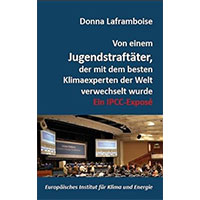
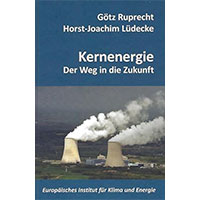
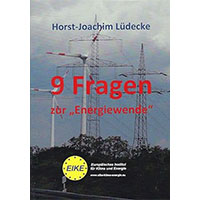

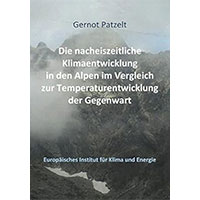

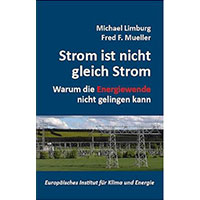
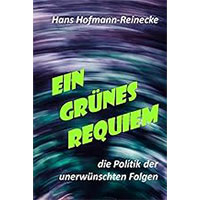
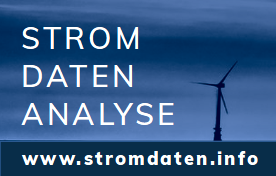


Wir freuen uns über Ihren Kommentar, bitten aber folgende Regeln zu beachten:
- Bitte geben Sie Ihren Namen an (Benutzerprofil) - Kommentare "von anonym" werden gelöscht.
- Vermeiden Sie Allgemeinplätze, Beleidigungen oder Fäkal- Sprache, es sei denn, dass sie in einem notwendigen Zitat enthalten oder für die Anmerkung wichtig sind. Vermeiden Sie Schmähreden, andauernde Wiederholungen und jede Form von Mißachtung von Gegnern. Auch lange Präsentationen von Amateur-Theorien bitten wir zu vermeiden.
- Bleiben Sie beim Thema des zu kommentierenden Beitrags. Gehen Sie in Diskussionen mit Bloggern anderer Meinung auf deren Argumente ein und weichen Sie nicht durch Eröffnen laufend neuer Themen aus. Beschränken Sie sich auf eine zumutbare Anzahl von Kommentaren pro Zeit. Versuchte Majorisierung unseres Kommentarblogs, wie z.B. durch extrem häufiges Posten, permanente Wiederholungen etc. (Forentrolle) wird von uns mit Sperren beantwortet.
- Sie können anderer Meinung sein, aber vermeiden Sie persönliche Angriffe.
- Drohungen werden ernst genommen und ggf. an die Strafverfolgungsbehörden weitergegeben.
- Spam und Werbung sind im Kommentarbereich nicht erlaubt.
Diese Richtlinien sind sehr allgemein und können nicht jede mögliche Situation abdecken. Nehmen Sie deshalb bitte nicht an, dass das EIKE Management mit Ihnen übereinstimmt oder sonst Ihre Anmerkungen gutheißt. Wir behalten uns jederzeit das Recht vor, Anmerkungen zu filtern oder zu löschen oder zu bestreiten und dies ganz allein nach unserem Gutdünken. Wenn Sie finden, dass Ihre Anmerkung unpassend gefiltert wurde, schicken Sie uns bitte eine Mail über "Über Uns->Kontakt"Vielen dank. The translation is appreciated. My German is not good enough to understand the original. I cannot help but wonder what will happen to Spain, Greece and the various EU member nations when Deutschland can no longer uphold the power grid.
wir sind möglicherweise etwas zu „weiblich“ geworden.
Und es fehlen Ingenieure.
mfG
It is a big unfortunate for Germany political leadership that decision of shutting down nuclear plants was made by people who have had no technical clue about the basics of power generation, grid stability and the following consequences. There is evident lack of basic technical, engineering, economical and legal expertise within the circles of political decision makers. The so called “ethic commission’ did not have any power generation experts or electrical engineers who could have presented the implications of shutting down the baseload plants.
Vielen Dank für die Übersetzung,
ich habe Freunde in England die darüber dankbar sind.
Es wär schön, wenn es eine Übersetzung zu diesem Artikel geben würde
HH